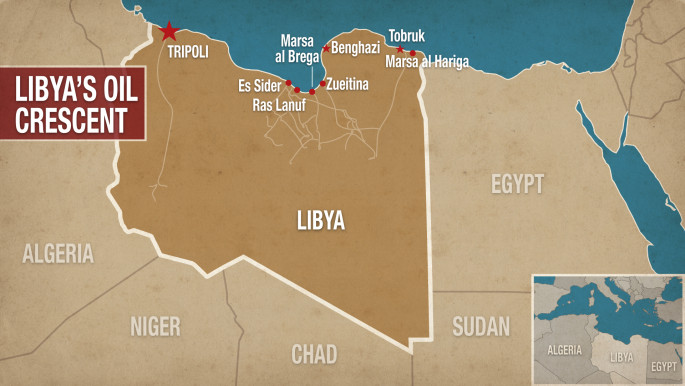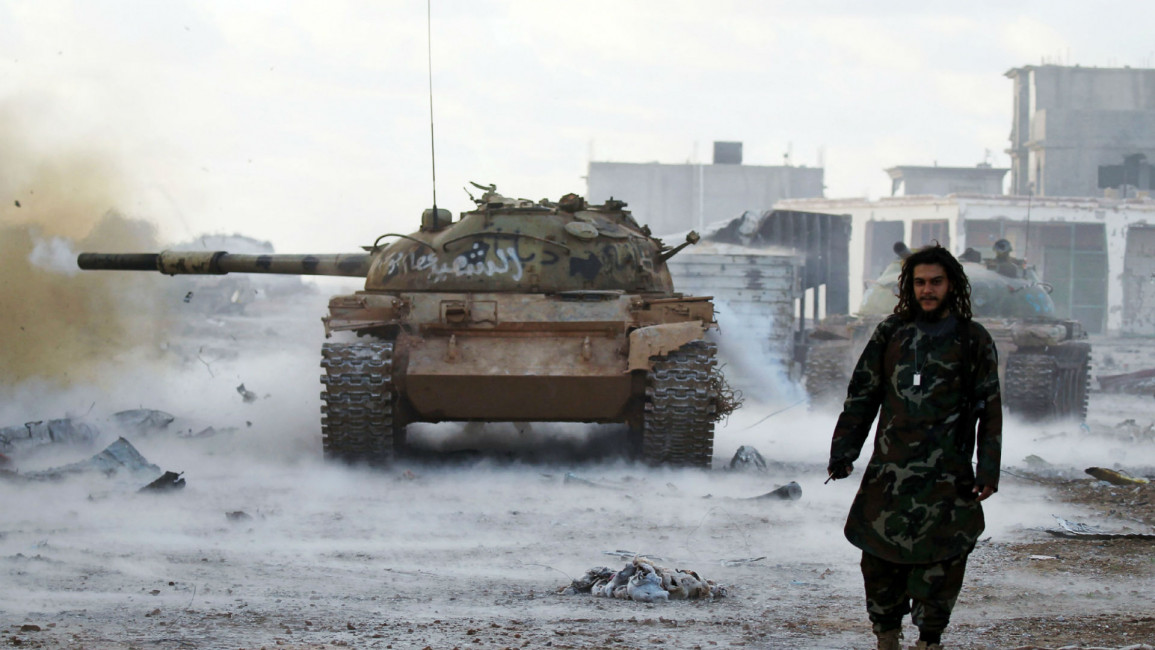Libya's oil lifeline falters as militias converge on terminals
Libya is currently exporting 602,900 barrels a day, compared to 700,000 barrels a day recorded before fighting broke out between the UN-backed West Libyan government and General Haftar's East Libyan fighters.
Sider port, the largest oil terminal in Libya, remained closed on Monday after it was captured by Islamist fighters who expelled Haftar's eastern-based Libyan National Army [LNA] on 3 March.
LNA fighter planes launched airstrikes against the terminal on Sunday evening and Monday morning in retaliation and hundreds of LNA troops are reportedly positioned near the refinery.
The west Libyan Government of National Accord (GNA) announced a no-fly zone in the oil crescent region on Monday following Haftar's airstrikes.
The head of the Petroleum Facilities Guard, Edriss Bukhamada, said the "random shelling" on the oil terminals was a "vicious crime", adding that Haftar's forces only wanted to damage the Libyan government's sole source of income.
Control over Libya's oil terminals is essential for any ruling party who wishes to maintain control over the rest of the country.
 |
|
| Click to expand - A map of Libya's main oil terminals |
According to Mattia Toaldo, senior policy fellow at the European Council on Foreign Relations, "without oil revenues there are no government revenues, and without those there are no salaries for about 80 percent of the workforce."
The Benghazi Defence Brigades, a militia of Islamist fighters who were ejected from Benghazi by the LNA, captured Sider port from the LNA in a revenge attack.
The Benghazi Brigades told The New Arab it had "no affiliation, either political or ideological" and that it's ultimate goal was to "end the suffering of tens of thousands of displaced families and to stop terrorism against civilians."
Libya's National Reconciliation Council said on Monday that all Libyans should abandon violence and "resort to peaceful solutions".
Libya's oil crescent is made up of the ports of Ras Lanuf, Al Sidra, Zuwaytina and Brega.
Libya - which has the largest oil reserves in Africa - had doubled its oil production year-on-year to around 700,000 barrels per day (bdp) before fighting broke out.
At the peak of its production ability, Libya was producing 1.6 million barrels a day before a 2011 uprising against deposed dictator Muammar Gaddafi instigated a civil war that has continued until today.


